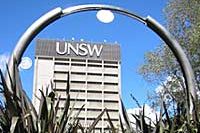Bus Strategy & Economic Mgmt - ECONI13593
Stream Summary
Faculty: COMM - UNSW Business School
School: School of Economics
Contact: UNSW Business School Student Centre
Program: 3593 - Commerce / Advanced Science
Award(s):
Bachelor of Commerce (Major)
View stream information for previous years
Stream Outline
Strategic decision-making is not only useful for relations with competitors, but for relations with suppliers, customers, business partners, and for the range of relations inside the firm. Employees, managers, shareholders and the board of directors all have different goals, and they behave strategically, not unlike competitors. They also have “incomplete information” about each other: Because employees and managers have complex skills and assignments, others cannot perfectly assess them through performance evaluations. And each employee understands certain aspects of the business and its customers better than others. Economics allows managers and owners to structure divisions, teams and salary packages for employees to gain the highest profits. The flexibility of strategic thinking tools from economics allows a manager to deal with any new situations that arise - be it new research projects, start-up businesses, or business alliances.
Stream Structure
- A major in Business Strategy and Economic Management consists of 48 UOC (8 courses). Six (6) of these courses are specified; the other two (2) are elective courses that are chosen from the list below. At least one (1) of the elective courses must be at level 3 (i.e. ####3XXX). This is regardless of whether you are doing a single major or taking Business Strategy and Economic Management as a second major.
- ECON1102 Macroeconomics 1 (6 UOC)
- ECON1202 Quantitative Analysis (6 UOC)
- ECON2101 Microeconomics 2 (6 UOC)
- ECON2112 Game th & Bus Strategy (6 UOC)
- ECON3121 Managerial Economics (6 UOC)
- ECON3123 Organisational Economics (6 UOC)
Choose two (2) courses, with at least one being at level 3
- ACCT3563 Issues in Financial Reporting (6 UOC)
- ECON2102 Macroeconomics 2 (6 UOC)
- ECON2103 Business and Government (6 UOC)
- ECON2104 Applied Macroeconomics (6 UOC)
- ECON2107 Modern Labour Markets (6 UOC)
- ECON2111 Intro to Economic Development (6 UOC)
- ECON2117 Economics of Tourism ( UOC)
- ECON2126 Experimental Economics (6 UOC)
- ECON2127 Environmental Economics (6 UOC)
- ECON2128 Economics of Climate Change ( UOC)
- ECON2206 Introductory Econometrics (6 UOC)
- ECON2209 Business Forecasting (6 UOC)
- ECON2313 Aust. Econ. Development (6 UOC)
- ECON2322 The New Europe (6 UOC)
- ECON3101 Markets and Equilibrium (6 UOC)
- ECON3104 International Macroeconomics (6 UOC)
- ECON3106 Politics, Government and Econ (6 UOC)
- ECON3107 Economics of Finance (6 UOC)
- ECON3109 Econ Growth,Tech&Struct Change (6 UOC)
- ECON3110 Development Economics (6 UOC)
- ECON3114 Super and Retirement Benefits (6 UOC)
- ECON3116 International Trade (6 UOC)
- ECON3117 Retirement Saving and Spending (6 UOC)
- ECON3119 Political Economy (6 UOC)
- ECON3124 Behavioural Economics (6 UOC)
- ECON3125 Econ of Human Capital (6 UOC)
- ECON3130 Real Estate Economics (6 UOC)
- ECON3202 Mathematical Economics (6 UOC)
- ECON3203 Econometric Theory (6 UOC)
- ECON3206 Financial Econometrics (6 UOC)
- ECON3208 Econometric Methods (6 UOC)
- ECON3209 Statistics for Econometrics (6 UOC)
- MGMT2010 Innovation & Entrepreneurship (6 UOC)
- MGMT3001 Business & Corporate Strategy (6 UOC)
Honours
Students interested in Honours should refer to the Honours stream record for entry requirements.
Further information
Students are advised to follow requirements according to the year they commenced. Please refer to previous editions of the Online Handbook for your program requirements.
Contact the UNSW Business School Student Centre for advice.
tel: + 61 2 9385 3189
location: Level 1, room 1028, Quadrangle Building
Forms, policies and procedures
Frequently asked questions









